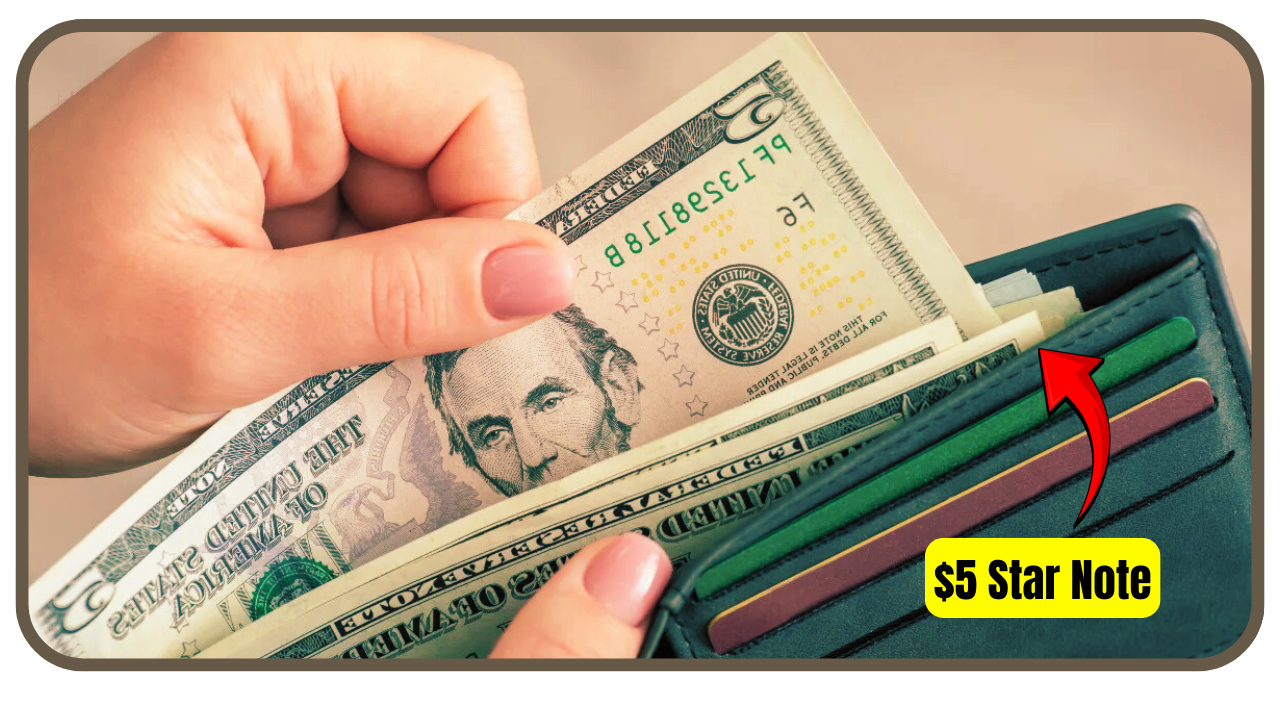Imagine paying for your coffee with a $5 bill that’s actually worth $60,000! That’s what happened to a barista in Colorado who found a rare 1969 $5 star note in her tip jar. These special bills, marked with a star in the serial number, are catching the attention of collectors across the country. Some of these notes are still out there, hiding in wallets, cash registers, or even your pocket change. Here’s why you should take a second look at your $5 bills and how to spot one that could make you rich.
What’s a Star Note, Anyway?
Star notes are replacement bills printed by the U.S. Bureau of Engraving and Printing when regular bills get damaged or misprinted during production. Instead of a letter at the end of the serial number, they have a star symbol (★). Because they’re made in smaller batches, star notes are much rarer than regular bills. For example, a 1969 $5 star note with a low serial number, like 00000001 to 00000100, can be worth a fortune, especially if it’s in crisp, uncirculated condition. One such note recently sold for $60,000 at auction because it was nearly perfect and had a rare serial number.
Why Are Some $5 Star Notes So Valuable?
The value of a star note depends on a few key things: its rarity, condition, and serial number. Star notes from certain years, like 1969 or 2006, are especially sought after because so few were printed. For instance, some 2006 $5 star notes from the Fort Worth, Texas facility had print runs as low as 640,000, making them super rare. A low serial number or a unique pattern, like 12345678 or 22222222, can also drive up the price. A bill in “Gem Uncirculated” condition—meaning it looks brand new—can fetch top dollar, while even circulated ones might be worth hundreds or thousands.
|
Feature |
What to Look For |
Potential Value |
|---|---|---|
|
Series Year |
1969 or 2006 |
Up to $60,000 |
|
Serial Number |
Star (★) at start or end, low numbers (e.g., 00000001) |
$50 to $60,000 |
|
Condition |
Crisp, no folds or tears (Uncirculated) |
Highest value |
|
Printing Facility |
Fort Worth, Texas or Washington, D.C. |
Varies by rarity |
How to Spot a Valuable $5 Star Note
You don’t need to be a currency expert to find a valuable star note. Start by checking your $5 bills for a star in the serial number, either at the beginning or end. Look at the series year, printed on the front of the bill—1969 and 2006 are hot years for collectors. Pay attention to the serial number itself; low numbers under 100 or repeating patterns are a big deal. If the bill looks worn or folded, it’s less valuable, but don’t toss it yet—it could still be worth more than $5. Use a magnifying glass to check details, and never fold or damage a bill you think might be special.
Where to Find These Hidden Treasures
The best part? These valuable star notes are still in circulation, meaning you could get one in change at a store, gas station, or even a tip jar. Check your wallet, purse, or any old cash you have lying around. Ask family members if they’ve got old bills stashed in drawers or old wallets. Banks and currency exchanges are also great places to look—try withdrawing some $5 bills and sorting through them. If you find a star note, visit a local coin shop or currency dealer for an appraisal. You can also check online tools like MyCurrencyCollection.com to see how rare your note is by entering its serial number, year, and denomination.
Rare $5 star note
Before you spend your next $5 bill, take a moment to check for that star. Emily Jones, the Colorado barista, turned a tip into $60,000 because she noticed something unusual and got it checked. Even if your star note isn’t worth tens of thousands, it could still bring in $50 to $1,000, which is a nice bonus for something you got as change. With more people using digital payments, cash is easy to overlook, but stories like this show that hidden treasures are still out there. So, grab your wallet, dig through your cash, and see if you’re holding a small fortune. Who knows? Your next $5 bill could be a game-changer
